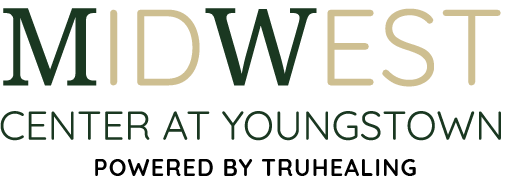Alcohol is often used to celebrate special occasions or relax after a long day. It can also be used to self-medicate chronic health issues like excessive stress, depression, anxiety, and post-traumatic stress disorder (PTSD). Some people can easily moderate their alcohol use and go a lifetime without any alcoholism signs. However, plenty of other people misuse alcohol for many reasons and become dependent on the substance. Being aware of the signs of alcoholism can alert you to the need for alcohol addiction treatment.
When you recognize the signs of alcohol abuse, reach out to Midwest Center at Youngstown. Our alcohol addiction treatment program can help you safely and comfortably get through withdrawal. When you enroll in our programs, you can count on having support and guidance around the clock to keep you sober. Contact us today at 844.544.0502 to learn more about our alcohol addiction treatment programs.
What Are the Signs of Alcoholism?
Noticing and addressing the symptoms of alcoholism can be somewhat tricky because alcohol is a socially acceptable substance. You will often find alcohol at parties, holiday celebrations, and other gatherings since it helps people feel happier and more relaxed. However, alcohol also has its dark side as many people develop a dependence or addiction that can destroy their lives.
If you are unsure whether someone is engaging in casual alcohol use or problematic drinking, consider the following signs of alcohol abuse:
Drinking frequently or drinking large amounts at one time
Five or more drinks within two hours defines binge drinking for men. Four or more drinks counts as binge drinking for women. Heavy drinking is regarded as 15 or more drinks a week for men and eight or more drinks for women.
Blacking out when drinking
The person may not remember the events of the night before or may only recall random portions of the evening.
Drinking has become a priority
The person may have no interest in activities that do not include alcohol and may miss out on important events with friends or family.
Engaging in risky behaviors while drinking
Driving, operating machinery, getting into fights, or engaging in unprotected sex while drinking can all be signs of alcohol abuse.
Developing a tolerance to alcohol
When a person can drink large amounts of alcohol without appearing intoxicated, they have likely developed a tolerance. They will require higher doses of alcohol to achieve the same effects.
If you attempt to speak to a loved one about your concern for their alcohol use, you may find that they get defensive or deny there is a problem with their drinking. The best course of action is to become well acquainted with the signs of alcoholism before you talk with them. This will allow you to present facts logically, caring manner so your loved one will be more likely to accept help.
The Importance of Treatment When You See Signs of Alcohol Abuse
When you begin noticing symptoms of alcoholism, there may be a temptation to quit cold turkey or taper off your alcohol use. However, at-home detox is not safe or recommended for everyone, especially if your addiction is more than mild. Some of the potential risks associated with quitting alcohol cold turkey include:
- Nausea and vomiting
- Excessive sweating
- Severe dehydration
- Rapid heart rate
- Depression
- Anxiety
- Hallucinations
- Tremors
Alcohol withdrawal symptoms can range from mild to severe, and in cases of severe alcoholism, they can be potentially fatal. Some people experience delirium tremens (DTs), which can cause fever, seizures, cardiac arrest, or coma. The safest option for overcoming alcohol addiction is to seek professional treatment.
Midwest Center at Youngstown: Safe, Effective Alcohol Addiction Treatment
If you or someone you care about is exhibiting signs of alcoholism, make the call to Midwest Center at Youngstown. Our alcohol addiction treatment can help you break free from the grip of alcohol use disorder. Through evidence-based medication-assisted treatment and therapy, we can help you safely withdraw from alcohol and work toward a happier, healthier life of sobriety. Reach out to us today at 844.544.0502 to get started on your path to recovery.

